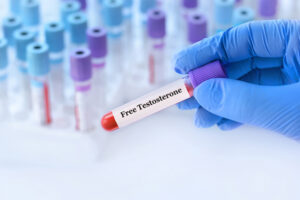Testosterone, a vital hormone predominantly found in men, plays a crucial role in muscle growth, bone density, and libido. As men age, their testosterone levels naturally decline, which can lead to various health issues. Testosterone boosters, which come in natural and synthetic forms, are widely used to combat this decline. This guide delves into the effectiveness of these supplements, their safety profiles, and alternative ways to naturally enhance testosterone levels.
Understanding Testosterone Boosters
What Are Testosterone Boosters?
Testosterone boosters are supplements designed to increase the body’s levels of testosterone. These products typically contain a mix of minerals, vitamins, and herbal extracts that claim to boost hormone levels and promote overall well-being. They are popular among athletes, bodybuilders, and individuals facing age-related hormonal decline.
Types of Testosterone Boosters
The market offers two main types of testosterone boosters: synthetic and natural. Synthetic boosters, such as anabolic steroids, are potent but often associated with significant health risks. Natural boosters, on the other hand, utilize ingredients like Tribulus terrestris, D-aspartic acid, and zinc to potentially enhance hormone production more safely.
The Science Behind Testosterone Boosters
Efficacy of Key Ingredients
Research on the effectiveness of testosterone boosters is mixed. Some studies suggest that ingredients like D-aspartic acid can temporarily boost testosterone levels in certain individuals, particularly those with low levels. However, other studies indicate minimal or no significant hormonal change from these supplements in healthy adults.
The Role of Diet and Exercise
Beyond supplements, diet and exercise play essential roles in naturally regulating testosterone levels. Consuming protein-rich foods, healthy fats, and cruciferous vegetables can support hormone health, while regular strength training, particularly high-intensity interval training (HIIT), has been shown to naturally increase testosterone levels.
Benefits and Risks of Testosterone Boosters
Potential Benefits
Users of testosterone boosters often report improved muscle strength, increased energy levels, enhanced libido, and better overall mood. These benefits, however, can vary widely based on the individual’s existing testosterone levels and overall health.
Possible Risks and Side Effects
The use of testosterone boosters is not without risks. Synthetic options, like steroids, can lead to severe side effects such as liver damage, increased risk of heart disease, and hormonal imbalances. Even natural boosters can cause minor side effects like acne, hair loss, and mood swings. It’s crucial to consult healthcare providers before starting any booster regimen.
Regulatory Overview and Quality Assurance
FDA Oversight and Supplement Quality
In the United States, the FDA does not regulate supplements as strictly as pharmaceuticals. This lack of stringent regulation can lead to inconsistencies in product quality and efficacy. Consumers are advised to choose products from reputable manufacturers and seek third-party testing when available.
Legal Considerations
The legal status of testosterone boosters can vary by country. In some places, particularly synthetic forms like anabolic steroids, are controlled substances. It’s important to understand the legal implications and ensure that any product used is compliant with local laws.
Alternatives to Testosterone Boosters
Natural Ways to Boost Testosterone
For those hesitant to use supplements, several natural methods may help increase testosterone levels:
- Regular Physical Activity: Engaging in regular exercise, especially weightlifting and HIIT, can significantly boost testosterone levels.
- Balanced Diet: A diet rich in vitamins D, zinc, and omega-3 fatty acids is known to support hormone production.
- Adequate Sleep: Getting enough sleep is crucial for maintaining healthy testosterone levels, as lack of sleep can severely decrease hormone production.
Consultation with Healthcare Professionals
Before starting any new supplement or lifestyle regimen aimed at boosting testosterone, consulting with a healthcare professional is essential. They can provide guidance based on personal health conditions and needs.
Conclusion
While testosterone boosters can be an appealing option for those looking to enhance their hormone levels, it is vital to approach them with caution. Understanding the potential benefits and risks, and considering natural alternatives, can help individuals make informed decisions about their health. With proper guidance and a balanced approach, it is possible to safely manage testosterone levels and improve overall well-being.
Citations:
- Harvard Health Publishing on the risks of testosterone supplements
- Mayo Clinic on natural ways to boost testosterone
- National Institutes of Health on dietary supplements
This comprehensive article covers the basics and nuances of testosterone boosters, providing readers with a balanced view on their potential health impacts and alternatives.
